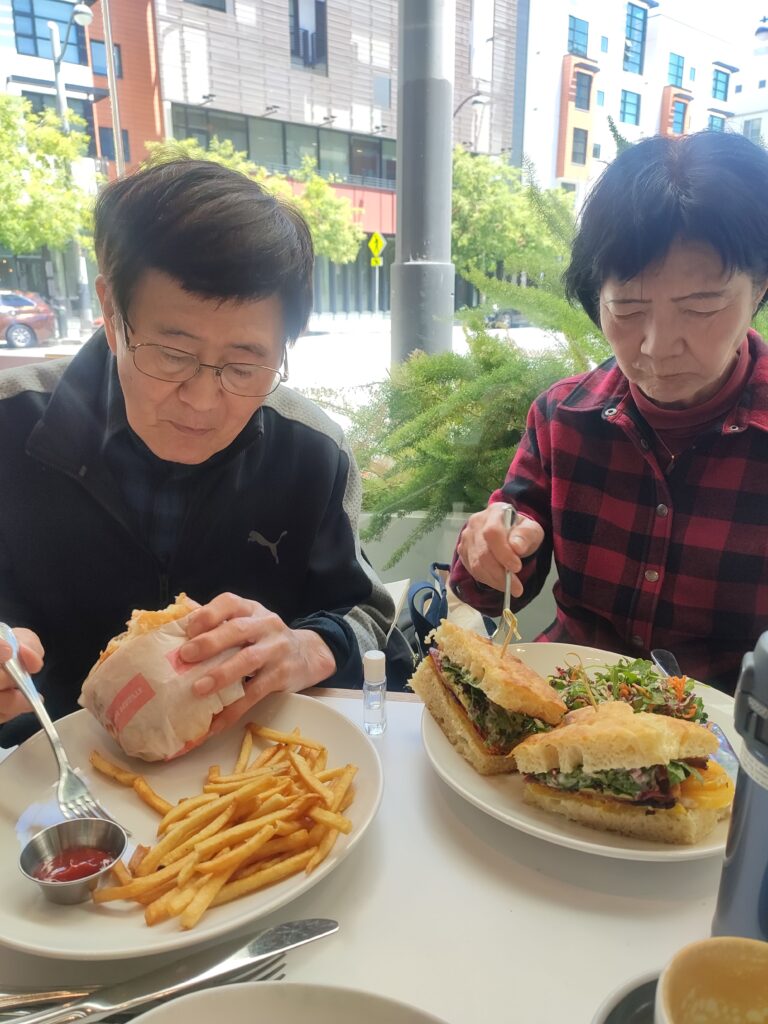
The number one thing I hear from people who want to go on sabbatical is the desire to not work so much so that they can “spend more time with family and friends”. It’s a phrase we throw around casually, and yet it’s something so important. But what does it look like in practice? What does spending time actually mean?
The number one thing I hear from people who want to go on sabbatical is the desire to not work so much so that they can “spend more time with family and friends”. It’s a phrase we throw around casually, and yet it’s something so important. But what does it look like in practice? What does spending time actually mean?
On the surface, it means meeting up with them for brunch or drinks on a regular basis. It means going home to see family for Christmas and Thanksgiving. It means organizing birthday parties and being there for milestone events like weddings or anniversaries. Maybe you will go on a trip with them to Hawaii or splurge on a cruise to the Caribbean. You will attend your kid’s basketball game or go play with them at the park.
I did all those things while I was working (except for the part about kids—I don’t have kids). But for some reason I still felt like I wasn’t spending enough time with them. I live with my partner and see him every day, yet I still craved more connection. What was missing?
The answer is a crucial word we often overlook: “meaningful”. The important thing is that we’re not just spending time with people—it’s about spending meaningful time with people. So what does meaningful time actually look like, and how is it different from just being around someone?
Being fully present during ordinary moments. Ever since I stopped working, I get to enjoy a cup of coffee with my partner in the mornings. My partner grinds the coffee and carefully pours it over and steams the milk. We then sit down in our living room and sip it while we discuss our plans for the day or the news or what we want to eat for lunch. It sounds terribly boring and truthfully there’s not much depth to our conversations. But it’s the purposeful intention behind what we’re doing each day and how we’re connecting that matters.
Staying connected across distance through intentional actions. I have an aunt who is 91 years old and lives in Northern Japan. As much as I would like to see her more often, the distance and logistics make it difficult. So I send her postcards (she doesn’t have a cell phone or computer) every quarter. I also send her a box of vegetables so she can make one grocery trip. This doesn’t require physical proximity, but it requires thoughtfulness and consistency.
Creating systems for connection. I schedule time in my calendar to reach out to each of my closest friends at least once every six months. For some it’s just a simple text; for others it could be replying to their Instagram posts. The key is letting them know that I have them on my mind, no matter where they are in the world and what stage of life they’re in.
Showing up during difficult moments, not just celebrations. My father suffered a brain hemorrhage last year and is still suffering from side effects while recovering from prostate cancer. Sometimes he needs help coordinating or translating with doctors for appointments, so my brother and I try to help him and my mom. Being on sabbatical meant that I was able to buy a ticket without hesitation so I could go see him in San Francisco to help take him to his MRI exam and to have meetings with social workers on his case. To be honest, I think he was happiest when I took him and my mom out to lunch after the doctor’s appointments as he hasn’t been able to be outside too much.
Being there for people when they need you most—that’s when time becomes truly meaningful.
Here’s what surprised me: A lot of people think they will have so much more time to spend with loved ones when they stop working. I thought the same way too. But in reality, it was quite difficult. Many of my friends are in different stages of life—whether they’re trying to get the next promotion or being a parent. Even when I want to spend time with them in person, their schedules make it difficult. Plus, many of my friends don’t live near me.
So don’t focus on how you can reach them and see them. Instead, think about how you can be of service to them or how you can help them given where they are right now in their lives. When you start thinking this way, spending meaningful time becomes less about your schedule and more about meeting people where they are.
